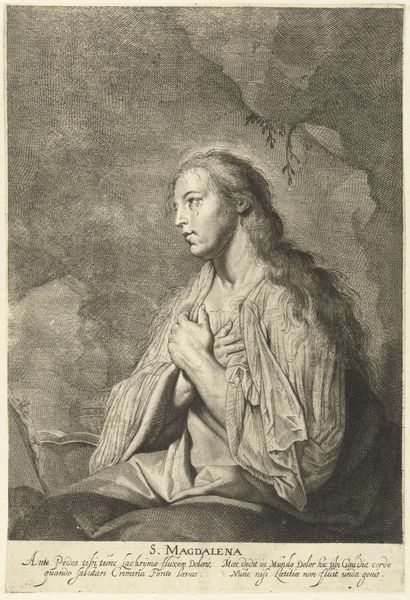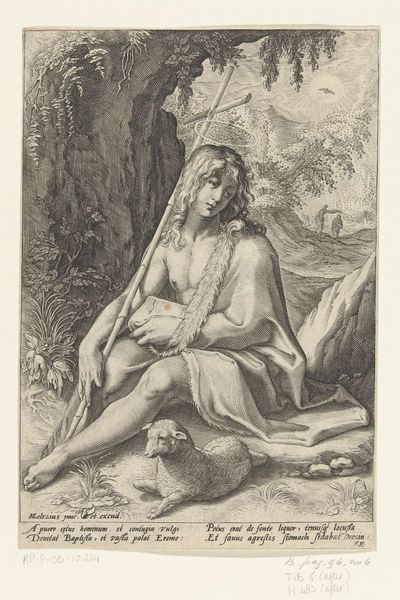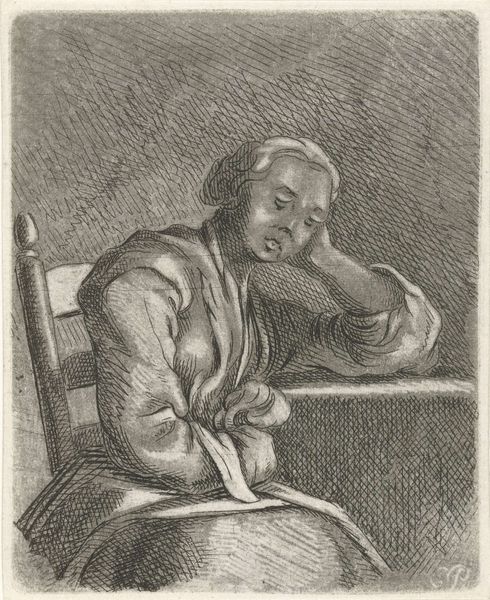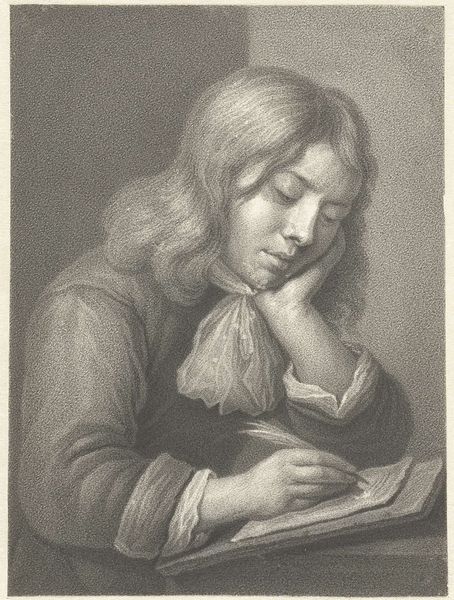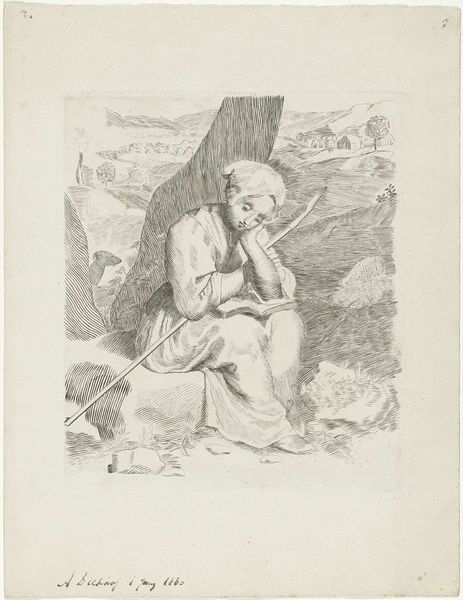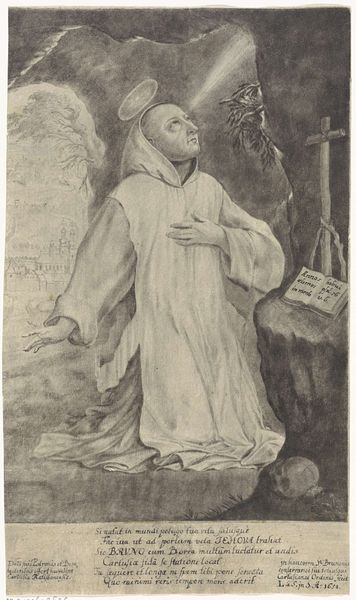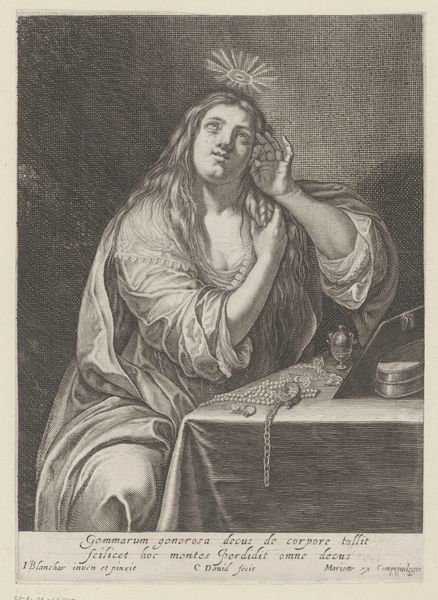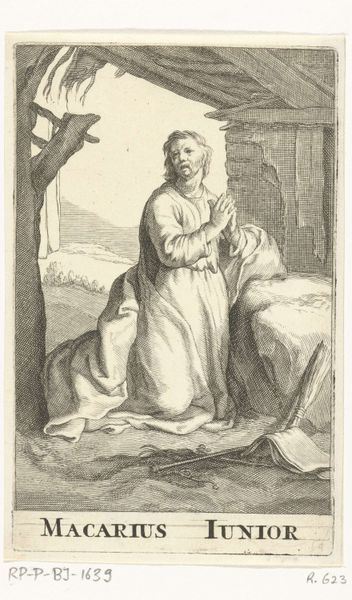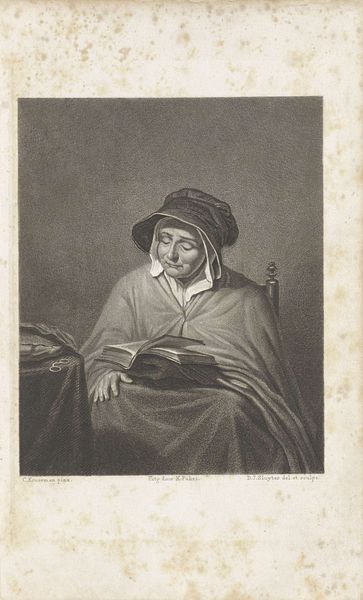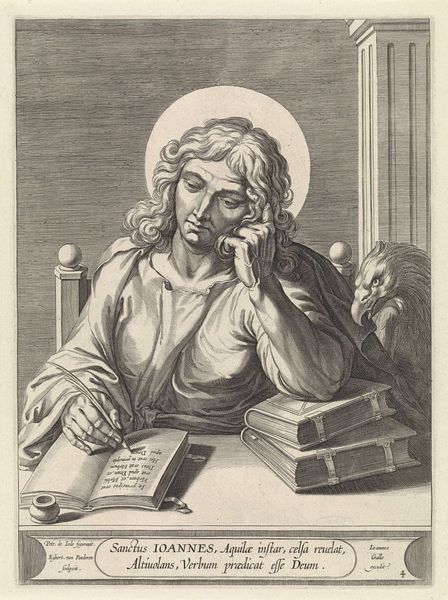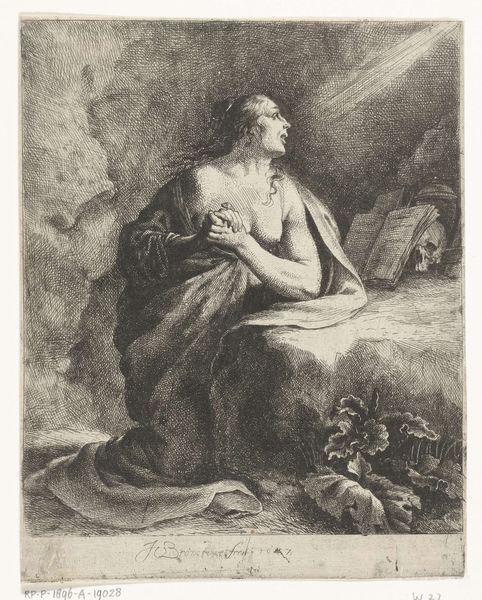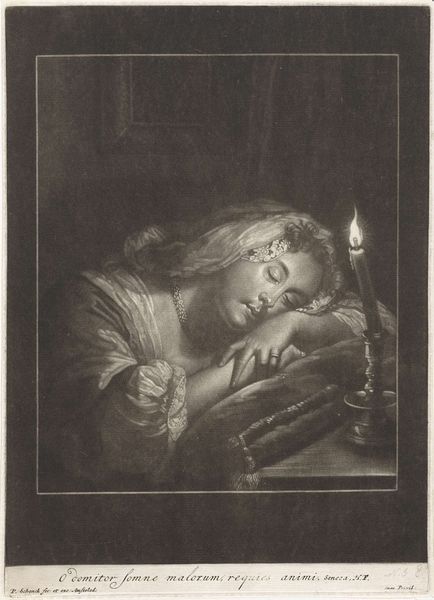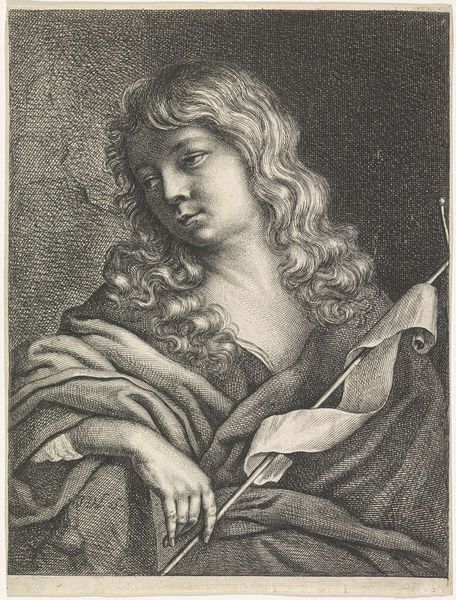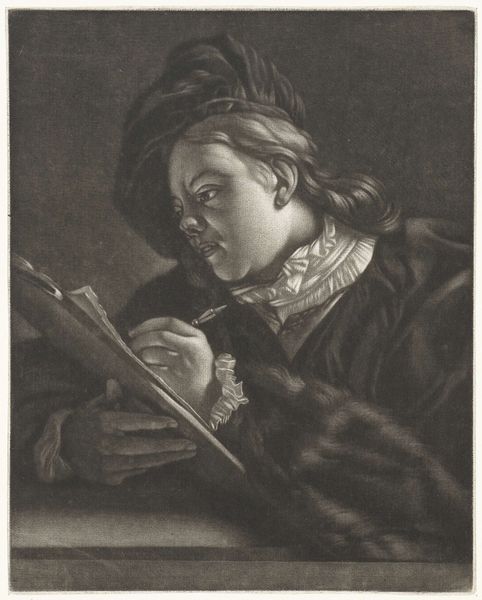
print, engraving
#
portrait
#
baroque
#
dutch-golden-age
# print
#
portrait drawing
#
history-painting
#
nude
#
engraving
Dimensions: height 365 mm, width 248 mm
Copyright: Rijks Museum: Open Domain
Editor: So, here we have Pieter Fransz. de Grebber’s "Heilige Johannes de Doper," likely created sometime between 1610 and 1655. It’s an engraving, giving it a stark, almost dramatic feel. What immediately strikes me is the contrast between John's somewhat vulnerable expression and his very muscular physique. What's your take on this piece? Curator: It’s fascinating how de Grebber uses the visual language of Baroque art to shape a particular narrative around St. John. We often see religious figures idealized, but here, the artist uses a figure like John, associated with the margins of society, to subtly question those very ideals. Consider how this image would have been received during the Dutch Golden Age. The rise of a powerful merchant class influenced the subjects artists chose and how they portrayed them. Do you think that social class could have had an effect here? Editor: That's a thought-provoking point. The almost raw depiction challenges the expectations of aristocratic portraiture. It almost makes him look more human and less a symbol of holiness. Curator: Precisely. And consider where engravings like this would circulate: in homes, amongst a growing literate public, reinforcing a direct connection to religious figures, a trend paralleling broader shifts away from the exclusive control of religious institutions over spiritual imagery. The printing press enabled that to spread, creating accessibility. How would such depictions, circulated widely, change the function of imagery for social elites and middle class families alike? Editor: I never really thought about engravings having such a democratizing power. The context makes a huge difference in seeing how truly powerful these prints can be!
Comments
No comments
Be the first to comment and join the conversation on the ultimate creative platform.
